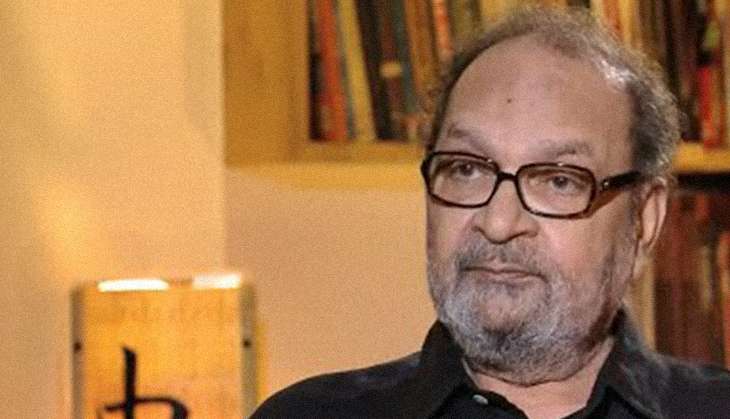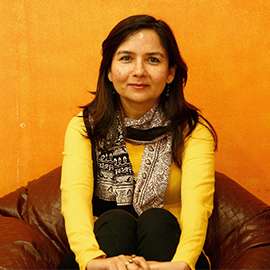Us vs Them: the journey of Muslims as the 'Other' in India

Saeed Naqvi has been experiencing the pangs of being 'the Other' for more than six decades. Almost as long as he has been pregnant with the idea of writing a book on it - documenting acts of betrayal inflicted by people and the government as well as bearing witness to acts of betrayal by his Own. Betrayal by bosom friends who, much like the rest of the world, end up seeing him as the Other.
His story - Being the Other: The Muslim in India published by Aleph Books - could be any thinking Muslim's story. Who is bending backwards to be accepted in the mainstream, but the acceptance is usually never complete. It comes with caveats. Or with unnecessary frills.
Also read -First person: It is not easy to be a Muslim. I never seem to make the cut
Being this 'Other' probably hurt Naqvi more because he grew up in Awadh - where a line between Hindus and Muslims was seldom drawn, and where syncretism was a way of life. Also, because Naqvi is a fairly modern Muslim. A Muslim who may be easily seen as the Other by his Own - "the 'other' within the Other", as he puts it.
This is a world that he is lost in and this is the world he is trying to reclaim - for himself, and for the Other(s).
The Othering of Muslims
Naqvi, a journalist of repute, was born a decade after India's Independence. He sees the Other as that which is "distinct from, different from, or opposite to something or oneself".
For him, the Othering of Muslims in India is akin to Palestinian scholar Edward Said's Othering of the East by the West.
"Looked at through this lens, it helps us see how, in India, an entire community, which comprises over 14 per cent of the total population, has come to be seen as the Other, as something exotic, backward, uncivilized, even dangerous."

The first act of betrayal that hit Naqvi was when he drove to Ayodhya in 1989 to watch the Shilanyas ceremony.
"Even though the Babri Masjid still stood, I knew that it was only a matter of time before it would be brought down. And with its fall, the whole charade of secularism and protestations that all was well with our country's politics and attitudes towards minorities, especially Muslims, would come to be seen for what it was. As an Indian Muslim who loved his country and was fully invested in it, I felt betrayed. And angry, because it could all have been so different," writes Naqvi in the introduction to the book.
The growing disharmony between Hindus and Muslims had registered with Naqvi right after the Partition of the subcontinent. He argues that by the early 1990s, this Othering had reached dangerous levels. And with the demolition of the Babri Masjid on December 6, 1992, it spiralled out of control.
He blames both the Congress and the BJP for this, and uses the word secular with caution because he has seen it being profaned often.
"...in the decades since Independence, under the supervision of the Congress party, the national mood was nothing but soft saffron. Remember, there was no Narendra Modi even on the horizon then and the Congress was in power in Delhi...," he points out.
After 9/11, the tolerance and syncretism that had marked more than a thousand years of Hindu-Muslim relations began to wither away.
"I am not suggesting that communalism was never there, but now it gathered velocity," writes Naqvi.
Nostalgic Naqvi
Through stories, Naqvi constructs an almost perfect past when Hindus and Muslims coexisted peacefully, creating a culture drawing upon the best from each other's communities.
A time when Eid wasn't Eid till Babu Mahavir Prasad walked in, clad in a black achkan and Gandhi cap, and settled down to large helpings of "sewai", handing over a one rupee coin as Eidi. When Naqvi's mother would send out rakhis to her husband's close friends. When Mohsin Kakorvi, an Urdu poet, wrote couplets in praise of Lord Krishna.
Also read - Faith, forestalled: a Muslim woman is stymied when she seeks space to pray
When the complications of a post-Independent India were lost on his grandmother, whom he fondly called Naani Ammi.
"Right up to her dying day, Naani Ammi had great difficulty understanding the document called the passport. She had grown up with the knowledge that to travel from one place to another all one needed was a railway ticket."
And another instance when Naani Ammi agrees to marry her two daughters in Lahore - because it seemed closer than Hyderabad or Bombay. Also because she believes that the India-Pakistan border is an artificial boundary hastily drawn up in a matter of weeks by an "angrez" and that it should be seen as a temporary inconvenience.
Naqvi can't remember exactly when, but his fairy-tail-ish life ended almost as soon as it had begun. He began to be identified as a Muslim. As the Other.
What hurt Naqvi the most was when in 1990, the late Vinod Mehta, a fellow editor, with whom he had attended school in Lucknow,invited him to write a column for his magazine from a "Muslim perspective".
"And now, as editor, Vinod was slotting me with the 'Other'. In a sense, I suppose he was following a trend because of the way things had worked out after Independence. If the country were to keep up the pretence of secularism, and equality, it needed the 'Other', although those of us who 'belonged' to this category seemed to be in short supply."
Proving Our Patriotism
Naqvi says that never does a day pass without someone questioning the legitimacy of the Indian Muslim, "a call for us to be 'super patriots', to prove our patriotism".
He points out that even Bollywood has not been spared. Shah Rukh Khan and Aamir Khan both faced a backlash from the Hindu majority in 2015 when they spoke out about an increasingly intolerant environment in the country.
He says there is an urgent need for India to reaffirm its commitment to pluralism, diversity and religious harmony and not pander to politicians - "whether from the left-of-centre Congress or the right-of-centre BJP".
Also read - Why is Islam's poster boy Zakir Naik taking moderate Muslims back in time?
Naqvi wants Indian Muslims to be freed from the clutches of clerics just as Hindus need to turn away from communal politicians. But he is not sure if any of this will happen in his lifetime.
"Being the Other" is essential reading for all those interested in understanding the unhappiness of Indian Muslims and forces that have shaped contemporary India. But as most nostalgic old men are wont to - Naqvi includes irrelevant personal details which makes the reading tedious. We hope the next print order omits those portions.
First published: 20 July 2016, 10:57 IST






![BJP's Kapil Mishra recreates Shankar Mahadevan’s ‘Breathless’ song to highlight Delhi pollution [WATCH] BJP's Kapil Mishra recreates Shankar Mahadevan’s ‘Breathless’ song to highlight Delhi pollution [WATCH]](https://images.catchnews.com/upload/2022/11/03/kapil-mishra_240884_300x172.png)

![Anupam Kher shares pictures of his toned body on 67th birthday [MUST SEE] Anupam Kher shares pictures of his toned body on 67th birthday [MUST SEE]](https://images.catchnews.com/upload/2022/03/07/Anupam_kher_231145_300x172.jpg)






